Making inroads
Some of the first Black women engineering students developed a fighting spirit to earn their degrees amid a sometimes hostile environment
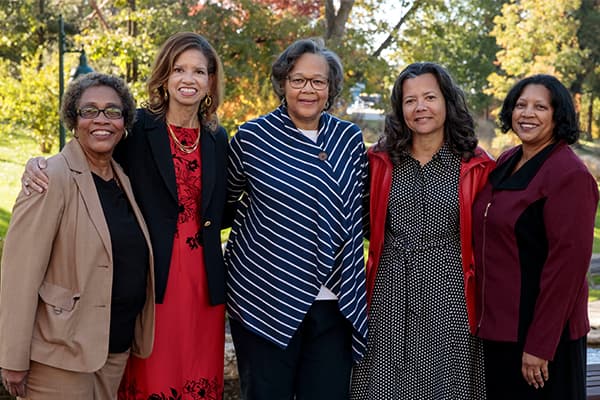
While engineering is a challenging discipline for anyone, some of the earliest black students in the McKelvey School of Engineering — both male and female — often experienced an unlevel playing field. For some of the female students, having to fight harder for their education while overcoming obstacles of racism and an unwelcome environment strengthened their resolve to earn their degrees, which led them to successful careers and prepared them to face hostile work environments.
The following five women were among the earliest black engineering students, and each has a similar story of developing a fighting spirit to earn her degree. While there were some resources for black Engineering students in the early 1970s, black students said they often felt excluded. The Black Student Union's Black Student Guide indicated there would be "apathetic and hostile environments," but encouraged black students not to lose sight of their purpose: getting a good education.
Although Washington University began recruiting black students as early as 1963, it did not require students to indicate their race or ethnicity until 1979, so it is unclear when the earliest female black engineering students graduated. The earliest female engineering graduate on record is Gracie Mae Sanders, who earned a degree in applied math & computer science in 1970.
Kim Jefferson came to WashU in 1974 at the urging of her father. She quickly realized she was the only black student in her classes and fitting in would not be easy.
"I didn't know any students in my engineering classes, and they were not interested in bringing me into their circle," said Jefferson, now Simmons, who earned a degree in systems science & mathematics in 1978.
Simmons said she felt that black students were overlooked — she saw an adviser only once in four years — but what she learned from her experience at WashU was invaluable.
"It made you a better fighter because you had to fend for yourself," she said.
Fending for oneself was a common theme among these women. Sandra Massey, now Sandra Townsend. came to WashU in 1974 after graduating from Sumner High School in St. Louis. At the end of her first year, her adviser expressed surprise at how well she did in her math and chemistry classes and suggested she change her major from pre-med to chemical engineering. But when she tried to enroll for her third year, she was prevented from registering and getting financial aid: An administrator had placed a note in her file predicting that based on her background, she would not make it past her second year and not to allocate financial aid for her.
“I worked for my degree. No one gave me a pass, and no one was easy on me, so I wear it proudly.”
— Sandra Massey Townsend
"That was devastating — it was a life-changing event," she said. "I gathered my report cards and everything I had to prove I had not failed a course. There wasn't anyone to go to for help."
Townsend stayed the course and was vice president of the Engineering Council her senior year before earning a bachelor's in chemical engineering in 1978.
Finding a community
Coming to WashU as a married dual-degree student from Carleton College and having attended predominantly white schools since fifth grade, Hazel Donald's experience was somewhat different. The Society of Black Engineers (SOBE) was started in the mid-1970s to meet the need for community and support among black students in Engineering, which she found was lacking.
"You did feel an anomaly because you were," Donald said. "But because I was married and older and had already had a good experience at Carleton, it helped me not worry about it as much. I had a built-in support group in my husband, who also was a dual degree Engineering student. If I had come fresh from high school in Boston, I don't think that I would have chosen engineering because it wasn't so welcoming — in fact, it was downright hostile."
NSBE was founded in 1975 with the mission “to increase the number of culturally responsible Black Engineers who excel academically, succeed professionally and positively impact the community.”
Townsend, Simmons and Donald met — and became lifelong friends and godparents to each other's children — through SOBE, which was later folded into what became the National Society of Black Engineers (NSBE), a nationwide group of black engineering societies that has a vibrant WashU chapter. SOBE was instrumental during their time at WashU, Townsend said.
"If we didn't have SOBE, there was no way I could have stayed," Townsend said. "There wasn't a place for us that felt comfortable to socialize or to get into study groups. You didn't feel welcome to do that. SOBE gave us that place to go and help us to navigate through everything."
Katherine Miller, now Mapp, came to WashU in 1969 from Carver High School in Memphis, Tennessee, and found her own support system in applied math & computer science. Her engineering study partner was Lewis Price, another black student.
"An electrical engineering professor used to tell us that with our background, there was no way we would make it out of WashU School of Engineering," Mapp said. "I think Lewis and I took that as fuel for the fire to show them that we were going to graduate."
Nancy Spears, now Hamilton, who came to WashU from predominantly white Kirkwood High School, said her adjustment to WashU was likely easier for her than for other black students.
“It was important for me to be successful, not only for me, but also for my family. I was the first one in my immediate family to graduate from college.”
— Nancy Spears Hamilton
"My biggest issue was the black students, because I felt different and misunderstood," she said.
But that didn't get in the way of her purpose: to earn a degree in applied math & computer science.
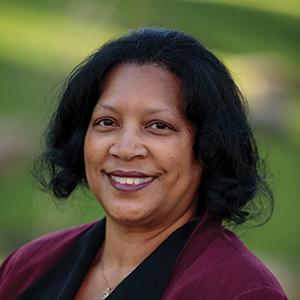
Kim Jefferson Simmons
Graduated in 1978 with a BS in systems science & mathematics
Had more than 14 job offers and worked at Southwestern Bell Telephone Co. for 35 years
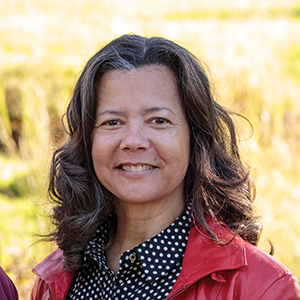
Hazel Donald
Graduated in 1977 with a BS in systems science & mathematics and in 1991 with an MA in teaching
Taught math in local private schools
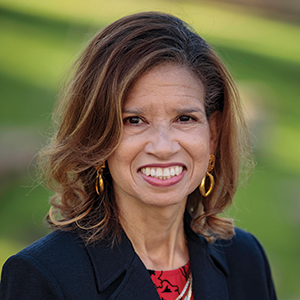
Sandra Massey Townsend
Graduated in 1978 with a BS in chemical engineering
Spent 19 years at Monsanto as a chemical engineer
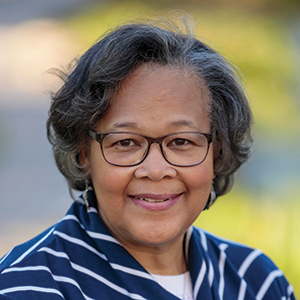
Nancy Spears Hamilton
Graduated in 1974 with a BS in applied math & computer science
Had more than a dozen job offers and spent her career at Southwestern Bell Telephone Co.
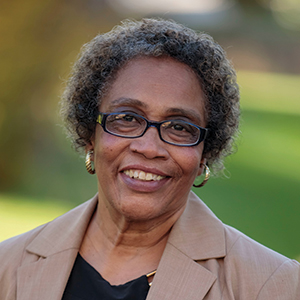
Kathy Miller Mapp
Graduated in 1973 with a BS in applied math & computer science
Worked on mainframe computers at Ralston Purina (now Nestlé Purina) for 41 years
Successful careers
All of these women — and many of their peers — persevered through their WashU experience during a turbulent time in the nation and the world and implementation of affirmative action policies designed to end discrimination.
- 10.5% University-wide black students in Fall 2018
- 3.75% Percentage of black graduates in Engineering in the 1980s
- 4.36% Percentage of black graduates in Engineering in the 2010s
Hamilton graduated in 1974 with more than a dozen job offers and went to work in information systems management at Southwestern Bell Telephone Co., now AT&T, retiring in 2003 as a chief of staff in industry markets.
Mapp graduated in May 1973 and went to work at Ralston Purina working with mainframe computers. She retired from Nestlé Purina 41 years later, and remains active with WashU's Black Alumni Council and returns for Thurtene Carnival annually.
Townsend held several positions, including 19 years at Monsanto as a chemical engineer in the plant and progressed to several management positions in manufacturing, at IBM as a systems engineer, as a business consultant for the city of St. Louis and participated as owner/operator of a McDonald's franchise with her husband. She has owned a The UPS Store franchise for 14 years.
Donald graduated in 1977 with a degree in systems science & mathematics from WashU and a degree in mathematics from Carleton College, then returned to WashU to earn a master's in teaching in 1991 and taught math in local private schools.
Simmons graduated in 1978 with 14 job offers. She joined Southwestern Bell, where she worked for 35 years, and owned a Massage Envy franchise for 10 years.
"All things being said, we are where we are today because we had a good education," Simmons said. "We earned a degree from WashU, which was impressive to a lot of companies."
Back to Engineering Momentum